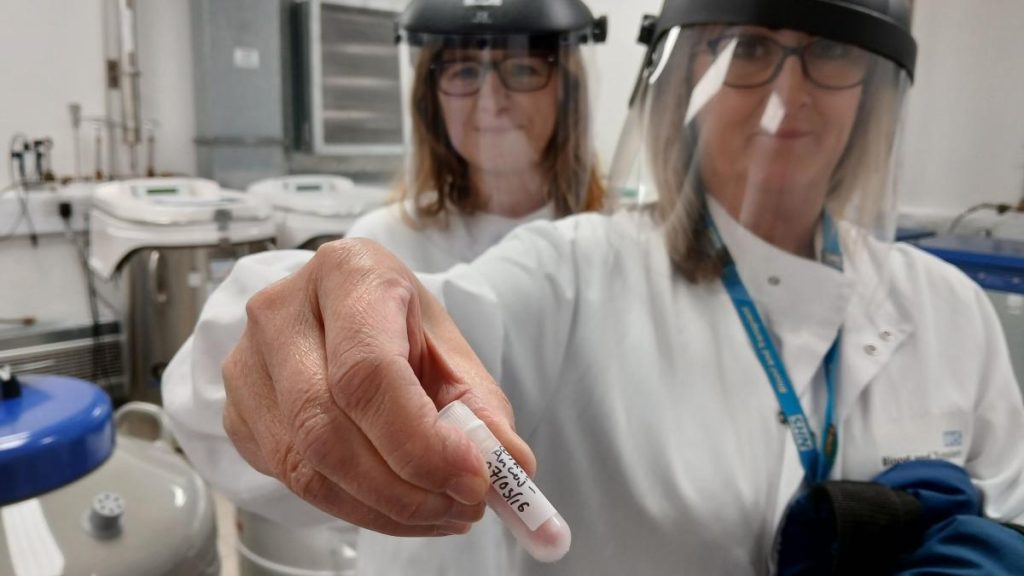NHS scientists have discovered a new blood group called MAL, solving a 50-year-old mystery surrounding the AnWj blood group antigen. This discovery will benefit rare patients who are missing this antigen and may react against a blood transfusion. The International Blood Group Reference Laboratory in Filton has developed a test to identify patients who lack this antigen, potentially saving thousands of lives around the world. This breakthrough has been described as a significant step in improving blood safety and matching donors with recipients more effectively.
The research team at NHS Blood and Transplant (NHSBT) in South Gloucestershire, led by senior research scientist Louise Tilley, has been working on this project for 20 years. The discovery of the genetic background of the AnWj blood group antigen will offer better care to rare patients who require transfusions. Approximately 400 patients worldwide turn to NHSBT as a last resort each year, making this test a crucial development in the field of blood transfusion. The identification of genetically AnWj-negative patients and donors through genotyping tests will enable a more precise matching process and improve outcomes for those needing blood transfusions.
One of the laboratory staff, Philip Brown, who was diagnosed with a form of leukemia 20 years ago, highlights the importance of safe blood transfusions. Without the transfusions and a bone marrow transplant, he may not have survived. This discovery is seen as a significant advancement in making blood transfusions safer and more effective for patients in need. Nicole Thornton, the head of the laboratory, emphasizes the collaborative effort and dedication put into resolving the genetic basis for the AnWj blood group antigen for the benefit of rare patients worldwide.
The NHSBT laboratory in Filton has not only developed a world-first test for identifying the missing antigen but also provides antibodies to countries around the globe to support research in this field. The laboratory plays a crucial role in assisting other reference labs that face challenges in identifying certain blood groups or antigens. By offering expertise and resources, NHSBT contributes to the global effort to improve blood transfusion practices and ensure the safety and effectiveness of the process. The team is currently working on new projects that may lead to the discovery of additional antigens and blood group systems.
The international significance of the discovery made by NHSBT scientists in Filton is emphasized by health reporter Matthew Hill, who describes the impact of their work on blood safety and research worldwide. The development of new genotyping tests and the provision of antibodies to support research in other countries demonstrate the influence of NHSBT’s findings on global healthcare practices. The dedication and passion of the laboratory staff in making these discoveries for rare patients reflect their commitment to advancing the field of blood transfusion and improving outcomes for those in need. This discovery marks a significant milestone in the ongoing efforts to enhance blood safety and match donors with recipients more effectively.
As the news of this breakthrough spreads, people worldwide are recognizing the importance of the discovery of a new blood group and its potential impact on saving lives. The collaboration between NHSBT scientists and healthcare providers around the world highlights the interconnected nature of healthcare research and the importance of sharing knowledge and resources to benefit patients globally. The ongoing efforts of the laboratory staff in developing new tests and antibodies demonstrate their commitment to advancing blood transfusion practices and ensuring the safety and effectiveness of transfusions for rare patients. This discovery serves as a testament to the dedication and expertise of healthcare professionals working together to improve patient care and outcomes in the field of transfusion medicine.


